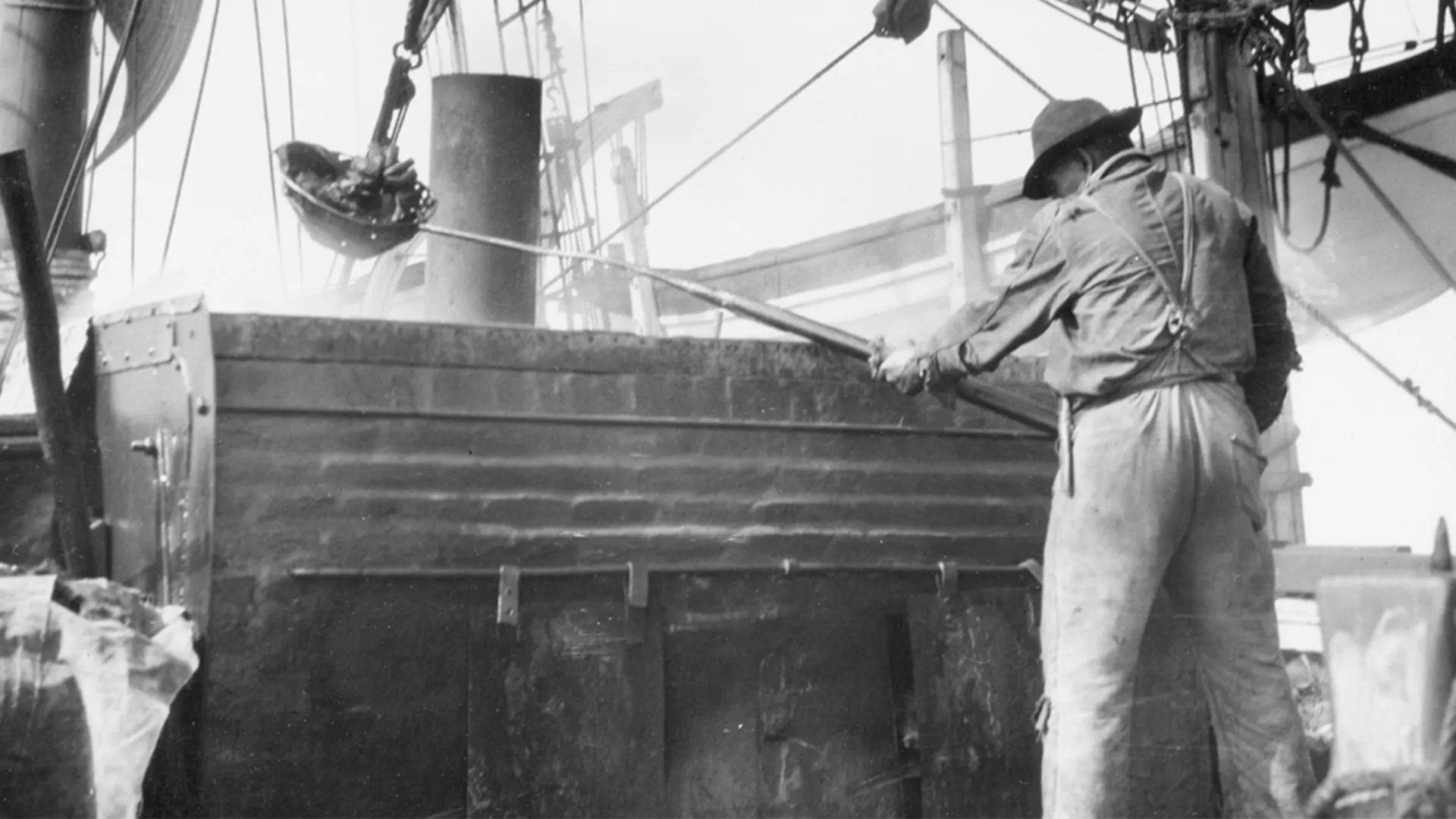Tryworks
In this giant brick kiln, whale blubber was boiled or “tried out” on board whaleships and the rendered oil was stored in barrels. For Ishmael, these tryworks transform the whaleship into a floating factory that manufactures a saleable good out of raw materials.
But the tryworks also takes on multiple, even contradictory, symbolic meanings in Ishmael’s meditations. Its flames are, at times, sacred and cleansing, at others, frighteningly demonic. “By midnight the works were in full operation,” Ishmael recalls of the first night the fires were kindled during his voyage on the Pequod. “We were clear from the carcass; sail had been made; the wind was freshening; the wild ocean darkness was intense. But that darkness was licked up by the fierce flames, which at intervals forked forth from the sooty flues, and illuminated every lofty rope in the rigging…the burning ship drove on, as if remorselessly commissioned to some vengeful deed.”

